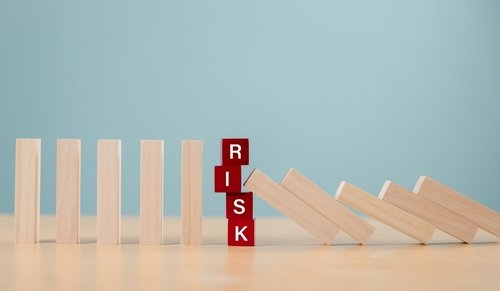
Politique Internationale — Could you remind us of a few key dates in the history of risk?
François Ewald — It’s not easy, because the concept is so ambiguous between its philosophical and moral dimension – a way of questioning ‘responsibility’ – and its technical dimension – legal, financial, insurance and environmental. In fact, these two dimensions will continue to intersect.
The concept appeared in the Middle Ages to justify the fact that the banker, the lender, could claim that the borrower should give him back more than he had given. The moral dimension was framed by Catholic theology, which prohibited usury. The Franciscans brought the idea that the banker performed a useful social function – enabling society to commit itself to the future – and that this justified remuneration for his ‘risk’. Consequently, the remuneration of risk is legitimate only insofar as it is used to serve his social mission and not as a principle of personal enrichment. This moral and financial dimension of risk is still present today.
The insurance dimension comes from maritime trade and the first insurance practices: the shipowners of a port share the shipping risk among themselves so that a loss that would lead to ruin remains bearable. In this sense, risk does not refer exactly to an event, but to the monetary value attached to a potential loss linked to that event.
This is the purpose of the contract that shipowners enter into with each other for mutual protection. Much later, Leibniz would use this scheme to advocate compulsory municipal fire insurance.
A third dimension concerns the calculation of the value of risk. This mathematical dimension was based on games of chance, which were widespread in the seventeenth century. The theory of risk was then enriched by the work of the greatest mathematicians: Pascal, for example, formulated the rule of parties, the moral translation of which is found in the famous notion of ‘the bet’. Risk is interpreted on the basis of the calculation of probabilities. It is not a question of valuing the gambler’s taste for risk, but of using the calculation of odds to argue that, if he is a rational being, the atheist must bet on the existence of God and adapt his conduct accordingly.
A final dimension is linked, in the eighteenth century, to the progress of the democratic idea and to the philosophy of individual savings. This philosophy was at the root of the development of what we call ‘land-based’ insurance, in contrast to marine insurance: life insurance and fire insurance. Insurance became social in several respects: it became a way of running a good society – through mutuality and risk-sharing – as a means of covering risks for which everyone tended to be made responsible. Risk thus accompanied the birth of the ‘bourgeois’. It has very little to do with the risk of the knight who, in an act of pure expense, risked his life in battle. This is about being prudent in the modern sense of the word. You have to measure the risks you take so as not to jeopardise your fortune. The precautionary principle is not so far off.
P. I. — Antiquity, the Middle Ages, the Ancien Régime... These successive milestones are illuminating. But when did risk systematically invade all areas of human activity?
F. E. — I’d be happy to give you an answer based on what I’ve just said: since the beginning of time. Roger Caillois, in his fine essay Les Jeux et les hommes, gives risk an anthropological dimension. In itself, it is a fundamental characteristic of humanity to be confronted with risk, whether or not the term is used. But thinking about what happens as a risk makes it possible to rationalise the choices and commitments that characterise the modern age. And since risk is a fiction, a way of thinking about reality, danger and events, practically everything can be ‘put’ at risk, apart from those events for which we do not have enough data to apply the calculus of probability. This is the moment in risk thinking that the American economist Frank Knight masterfully summed up in Risk, Uncertainty and Profit. The limit of risk is uncertainty. This is a highly topical issue: the conflict between those who believe that all ‘risk’ can be rationalised on the basis of available data and those who, as ‘precautionary’ thinkers, believe that human knowledge is fundamentally limited and that we must take into account what we do not know or do not yet know in our assessment of ‘risk’. Risk is then dispersed in the ocean of uncertainty. For the ‘precautionary’ thinker, the greatest risk, in the philosophical and moral sense, is to entrust ourselves to risk, in the technical sense. You have to think the unthinkable – which is hardly easy. And yet, there are many ‘black swans’ (1).
P. I. — Law, economics, finance... these are all areas where the material is very present. At what point does the emotional enter the sphere of risk?
F. E. — The emotional is at the root of the notion of risk, which is a way of warding off the anxiety of uncertainty. We can try to do this by many intellectual means: from divination and the interpretation of signs to calculations based on data, from the first statistics to today’s Big Data. But let’s not think that artificial intelligence will put an end to uncertainty and therefore to chance. The mystery of the insurance contract: how do you explain the fact that one agent agrees to take on the risk of another, and that he does so thinking he can make money out of it? Because, thanks to mutualisation, he will compensate for what he loses here by what he gains on the others, who will be protected. The calculation teaches him under what conditions he will never lose. The insured, on the other hand, is alone in the face of what he fears: he cannot calculate the probability of the event he fears, as the calculation of probabilities does not apply to individual cases. For him, risk takes the form of uncertainty. And to free himself from risk, he is prepared to pay more than the statistical value of the risk.
But you’re right: in principle, with risk, we’re dealing with a calculation that’s supposed to free us from our emotions. But this is not the case. Why isn’t it? The first answer is, as I’ve just said, that emotion, fear, anxiety and dread are at the root of our thinking about events as risks. There are two other, more cyclical reasons for this: it also has to do with the way in which risks are distributed. Risks are perceived as being linked to power relationships in society. This was already the case in the nineteenth century with occupational risks, which were seen as dependent on the authority of the employer. Today, many accidents are seen as the result of the way in which individuals exercise the power that is theirs: medical or pharmaceutical accidents, environmental risks – from pollution to global warming – or consumer risks... The attribution of risk and liability lawsuits are a contemporary form of social struggle and battle for recognition. It also has to do with the moralisation of behaviour to which ‘risk’ gives rise. We are all supposed to be welfare recipients, always on the lookout for new forms of protection. Risk has become a principle of social segregation, stigmatising as much as enhancing value. In this way, it is not a principle of inclusion and pacification, as it has been since the end of the 19th century with the concept of ‘solidarity’, but a line of confrontation between two moral visions.
P. I. — How did you come to take an interest in the notion of risk, which isn’t usually associated with philosophy?
F. E. — I tackled these issues in the 1970s. At the time, in the intellectual world, they were essentially the concern of lawyers – the law of obligations, social law – and economists, the two hardly communicating. In the practical world, they were the concern of insurers and financiers. ‘Risk’ was a technical category that didn’t give rise to the great philosophical and moral flights of fancy that it would become some fifteen years later. I became aware of the importance of the concept while working on the way in which the question of accidents at work was problematised. During the nineteenth century, it had given rise to a considerable debate about liability, which was to find its solution in the idea that it was an ‘occupational risk’ attributable to the ‘head of the company’ and that the latter had to compensate. In the 1970s, mining disasters – Fouquières-les-Lens, Liévin – and fatal accidents in the workplace led to the questioning of a problematisation that, in a way, ‘tolerated’ accidents. I turned this study into a philosophy dissertation (L’État providence, Grasset, 1986), and in so doing helped to bring the concept out of the specific fields in which it had remained confined.
P. I. — At what point does risk really enter the intellectual debate?
F. E. — In fact, in the 1980s, three of us in Europe published works at virtually the same time that placed ‘risk’ at the heart of political philosophy: myself, Ulrich Beck, a German, who published The Risk Society, and Orio Giarini, an Italian and former member of the Club of Rome. The concept has emerged from its technical anonymity to become, or re-emerge, as a philosophical, sociological and moral category. This is understandable in the context of the liberal push of the 1980s – which sought to marry risk and responsibility – the search for a political ‘third way’ – Clinton, Blair – the rise of financial techniques – for which risk was the raw material – and environmental issues. At the same time, ‘risk’ was called upon to become the basis of individual and social morality. It is right to ‘love risk’. We distinguish between ‘risk-takers’, whom we honour, and the ‘risk-averse’, whom we should be ashamed of. A whole ideology from which I quickly distanced myself.
But all that only applies to the recent past, the last fifty years. We are far from having invented ‘risk’, a concept which, in both its moral and technical dimensions, is undoubtedly as old as mankind itself, even if the word has only been used since the Middle Ages. So what is Greek tragedy about if not risk in the form of destiny and responsibility? What is Aristotle’s morality, centred on the notion of ‘prudence’, about if not the right relationship to risk? Why did Phoenician traders invent the first financial techniques, if not to hedge against the risks associated with maritime trade?
P. I. — Today, risk has never been so present in conversations. When someone decides to cross the Rubicon, they say that they are ‘going to take their chances’. Someone with an adventurous spirit is said to ‘love taking risks’. A third, who achieves a feat, is described as ‘a risk-taker’. In the end, it’s all pretty laudatory...
F. E. — You will note that these expressions refer to moral dispositions that have always been discussed, and in any case long before the term ‘risk’ was used to describe them. Since the end of the nineteenth century the notion of risk has been used primarily in a ‘solidarity-based’ sense, with individual risks seen as a dismemberment of an overall social risk. It was society that bore the risks, and it was necessary to examine whether their distribution was fair or unfair. And to devise corrective and pooling mechanisms. Many of our institutions, starting with Social Security, are based on this vision. Today, the pendulum is swinging back and the notion of risk is shifting from the social to the individual. The new bourgeois, the anywhere, the member of the new elite, professes a morality of risk very close to the existentialism of Jean-Paul Sartre, according to which we would be radically responsible for ourselves. From being a principle of socialisation, risk has become a principle of individualisation and singularisation. Risk should enhance an elite; it should be the principle of moral distinction, justifying social secession.
Allow me to distance myself from all this. The development of the notion of risk is undoubtedly an ‘advance of the human spirit’ (Condorcet) in both its intellectual and social dimensions – just think of the number of institutions whose existence and development it makes possible. It is better than ideologies that use the ambiguity of the notion in its philosophical and moral dimension. The love of risk for risk’s sake may characterise the adventurer, but it is not a virtue. It is at the root of many dangerous fanaticisms. Courage is not recklessness.
(1) See: Nassim Nicholas Taleb, The Black Swan, the Impact of the Highly Improbable, Random House, 2007.




















